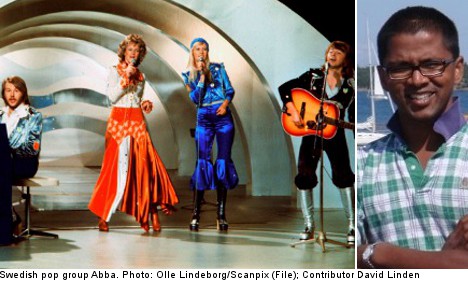For a long time Sweden’s Social Democrats have had a problem with politicians making money.
In 1976 when they for the first time since the 1930s were voted out of office, a series of scandals exposing double standards within the Social Democratic movement took place during the election campaign.
For example, when finance minister Gunnar Sträng had bought a house in Gamla Stan in Stockholm and rented it out to tenants, he planned his finances to avoid unnecessary tax.
Due to his “tax planning” he did not have to pay the taxes he as finance minister had levied on others.
The accusation of saying one thing and then doing another continued to haunt the Social Democrats. In the 1980s, minister of justice Ove Rainer had to resign after it was exposed that he also had carried out “tax planning”.
And when Olof Palme’s son studied at Harvard, he did not pay any fees in exchange for a lecture by his father. Palme did not declare this in his tax income tax return, as he should have done.
It developed into the “Harvard Affair” and Palme’s critics said that there must be something seriously wrong with the system of declaring one’s income, when not even the prime minister could do it properly.
Both the Swedish left and the right also share a strong dislike for politicians who switch from politics to the business world. The left sees them as traitors, while the right thinks they are hypocrites.
One modern example is Thomas Östros.
He studied more economics at university than finance minister Anders Borg and was considered to be among the brightest Social Democrats in parliament. He is now the new CEO of the Association of Swedish Bankers (Svenska Bankföreningen).
Previously he advocated a ban on banker’s bonuses but now they are “not a problem”.
His new salary is three times as large as what he earned as a member of parliament. A radio program that satirizes the news did a fictive interview with him, where he said that he also had other job offers and that one was from the Italian mafia in Naples.
He considered accepting it if the salary was right.
Another recent example is Pär Nuder.
He was minister for finance in Göran Persson’s last government and a possible candidate for the party leadership before Mona Sahlin, whom he referred to as his “political big sister”, defeated him.
Later she replaced him as economic spokesperson with Östros and in 2009 Nuder left politics for a business career. Today he is an advisor to the Wallenberg family, a member of several company boards, and in 2011 his own company made multi-million kronor profits.
The problem, however, was that he received his ministerial pension at the same time. Although he did nothing wrong in accepting the pension, his accepting of the money – which recently made headlines – has now become a moral question.
The current party leader Stefan Löfven even broke his successful vow of silence and condemned Nuder’s decision not to forego the pension amid steady profits from his own business.
Göran Greider, editor of the social democrat-leaning Dala-Demokraten newspaper and the self-appointed conscience of the social democratic left wrote an article where he claimed that private companies are looking for “right-wing social democrats” to act as their public alibi.
As in most cases Göran Greider is wrong.
What the private sector is looking for are ex-politicians with government experience. That is how the former Moderate Party leader Carl Bildt earned his living before he returned to politics to be Fredrik Reinfeldt’s minister for foreign affairs.
However, Greider is right about that it is a question of hypocrisy.
In politics as in life, if you say one thing and do another, eventually people will stop taking your views seriously.
In politics this is a problem mostly affecting representatives of the left because they tend to want to reverse what they see as privilege. Until they themselves become a part of it.
In the UK you have cases of several Old Labour politicians who advocated the abolition of the House of Lords. But when they became lords themselves, they suddenly thought abolition could wait.
On many occasions Göran Persson criticized what he derogatorily referred to as “those consultants”. During the 2002 election campaign he attacked the leader of the Swedish Conservative Party, Bo Lundgren, with the following question: “how can you who recently bought a house for six million kronor ($830,000) understand the situation for ordinary people?”
Four years later, Persson bought a country estate for twice as much and today he is working as a consultant. However, hypocrisy is not something present only within the left. Anders Björck who was defense minister under the 1991-1994 Moderate-led government often criticized the habit of appointing politicians for high profile government jobs such as ambassadorships.
His critique stopped when he became County Governor (Landshövding) of Uppsala.
Since leaving office Pär Nuder has realized that his network is worth a lot of money.
Although he has never publicly expressed admiration for the song “Money, Money, Money” by Abba, as Carl Bildt has done, there is another 1970s pop group that could be used to explain his motivation.
In his memoirs he says that his family and Mona Sahlin’s often celebrate Midsummer together and during the late hours, he and Sahlin sometimes go “disco-dancing” to the group Boney M.
She has not gone to the private sector as he has done.
Instead, she is the Swedish candidate to lead the International Labor Organization (ILO). Compared to Nuder, Sahlin will earn very little and she will not be allowed to join any company boards.
There is a line from Boney M’s song “Daddy Cool” that Pär Nuder might think of when he compares his financial gains to Mona Sahlin’s possible future career:
“She must be crazy like a fool…”
David Lindén is a PhD student in history at King’s College London and will serve as the acting political editor for Länstidningen in Södertälje for the summer 2012. Follow him on Twitter at @davidlinden1.



 Please whitelist us to continue reading.
Please whitelist us to continue reading.
Member comments